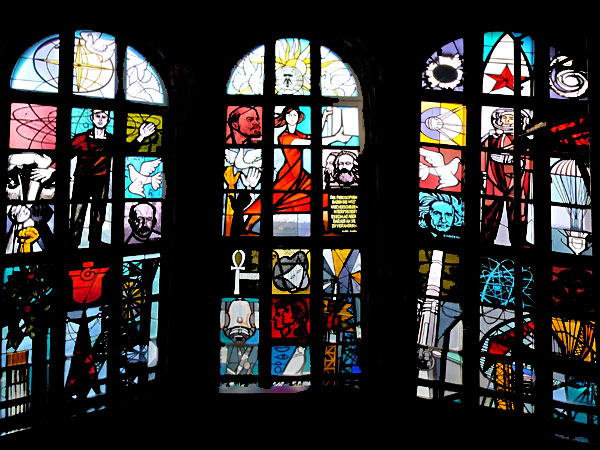
The Pandemic has made me a bit nervous. As a consequence, I have felt it to be difficult to concentrate on any new form of entertainment, and have chosen – as I understand, like millions of other people – to revisit some older shows or formats that are still familiar. This has led me to re-appreciate and rethink some old favorites that may have faded over time in the mass of new material that has emerged since then.
When you think of science fiction shows or franchises, people will typically mention Star Trek and Star Wars. Sure, both shows take place in space, but one (Trek) is science fiction, the other is, well, complicated. What role does science actually play in the Star Wars universe? Or better, what is science fiction?
As there are as many definitions as there are consumers of science fiction, I would propose the following limited set of parameters as minimum requirements:
- Science: discussion of real and extrapolated scientific ideas
- Politics and Society: The discussion of political and social utopias or simply alternatives, as facilitated by the philosophical reflection about other cultures and worlds, which may point to the possibility of changes to our own culture.
- Ethics: The discussion of classical philosophical, ethical and psychological problems through the plot
- Mythology and Religion: an engagement with themes of a mythological nature, the building of new mythological narratives, the raising of questions about the nature of existence
This list is probably not perfect but may serve our needs here.
As to Star Wars, aside from some episode of Clone Wars or Rebels, I cannot remember any science-centered story, nor any protagonist that would be a serious scientist. Points 2-4 though are well represented. With Star Trek, all notes are typically hit, but in my opinion less so recently. Ever since the Kelvin-timeline movies and Discovery, Star Trek has been following the Star Wars path more closely. The science that remains (the spore drive) is treated almost like magic, and actual scientific discussion is rare.
This is where Stargate is different, in all its incarnations (SG-1, Atlantis, Universe). Stargate is even interdisciplinary: There are natural scientists (Dr. Carter, Dr. Lee, Dr. McKay, Dr. Zelenka, Dr. Rush, Dr. Volker), humanities and social science scholars (Dr. Jackson, Dr. Weir, Jonas Quinn), medical doctors (Dr. Fraiser, Dr. Lam, Dr. Beckett, Dr. Keller, Lt. Johanson), and several engineers, bureaucrats, diplomats, and specialists. Lead characters with a doctorate other than medicine are almost unheard of in the other bigger franchises (notable exceptions: Dr. Bishop on Fringe, Dr. Sato on Enterprise and Dr. Balthar in Battlestar Galactica – both though underused in their scientific functions. Spock and T’Pol don’t have human doctorates).
Besides personnel, Stargate episodes frequently and sometimes exhaustively discuss science (real or extrapolated). Science drives the plot, experiments are made, success or failure (sometimes catastrophic failure!) can occur, and even the real scientific community is brought in. Just as Dr. Stephen Hawking guest starred in Star Trek TNG, Neil Degrasse Tyson and Bill Nye guest star on Atlantis.
This is not a trivial observation. Scientific reasoning and thinking – in all possible disciplines – seems in short supply right now. It is one of the purposes of science fiction to actually communicate science. Without it, all the other elements mentioned can still exist, but it should be science that ties everything together. The highlighting of scientific thinking, the portrayal of scholars and scientists – granted, in fantastic scenarios, but still – is sorely needed in our world which so deeply relies on science.
This should not be given up for the sake of entertainment, or for the assumed expectations of the audience. Let’s hope that whenever the new Stargate series – which is reportedly in the planning stage – will finally hit the screens, that it will remember its original formula which has inspired so many young would-be scientists and scholars so far.

